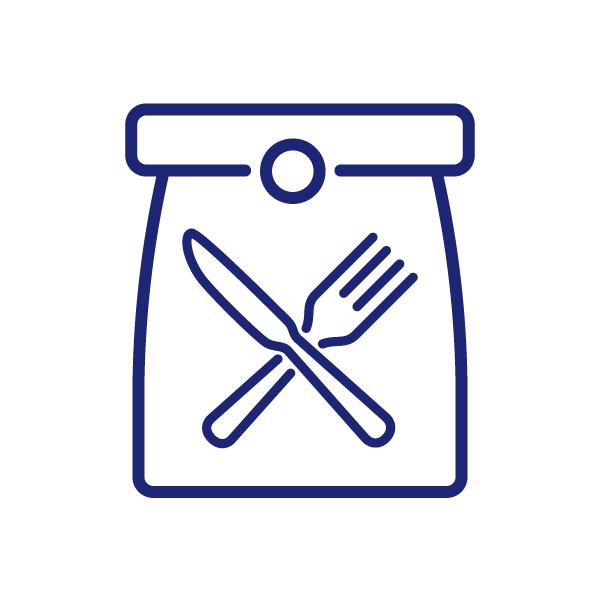If you’ve made the decision to buy a home, you’ll probably be taking a closer look at your finances to figure out how to reach your homeownership goals. Whether it’s your first home or a new space to meet your family’s needs, saving towards a new home is no easy task. On top of that, you may have other financial goals you’d like to achieve as well like saving for retirement, a well-deserved vacation, or building an emergency fund.
The good news is that you don’t need to sacrifice one financial goal in exchange for another. By assessing your financial situation, prioritizing your goals, and putting a plan in place, you can work towards achieving each goal.
Evaluate Your Finances
Before setting any financial goals, take some time to thoroughly assess your finances. Look at your income and expenses to get an accurate sense of how much money you’re working with when it comes to saving towards your goals. Creating a budget is a useful tool to stay on top of your finances and there are many free resources online to help you get started.
Quick Tip:
Don’t overlook small spending habits that may impact your finances. Making your lunch a few times a week instead of buying takeout or bringing a coffee from home can be an easy way to save!

Morning Latte |

Takeout Lunch |
In addition to the practical benefits of evaluating your finances, it also serves as an emotional check-in. Is your spending aligned with your values, what you want for your future? Approaching your finances from a holistic perspective can help as you move on to the next step.
Prioritize Your Savings Goals
Buying a home may be at the forefront of your mind but your other financial goals are important too! Consider how a home purchase fits into your overall financial plan by making a list of your financial goals. Categorize your goals based on their importance to you and how long it would take to reach the goal. Here are some common financial goals and how they may be categorized.
| Short-term goals | Medium-term goals | Long-term goals |
|
Less than 3 years
|
3 to 10 years
|
More than 10 years
|
|
Short-term goals Less than 3 years
|
Medium-term goals 3 to 10 years
|
Long-term goals More than 10 years
|
How you prioritize your financial goals is personal and will look different for each person. For example, if buying a home is a top goal on your list, you may be willing to forego a family vacation for a year or two to help build your down payment.
Create A Plan
Once you’ve created a list of your financial goals and where they rank in terms of importance, determine how much you’d need to reach your goal and how long you have to reach it.
| Goal #1 | Down Payment |
| Amount | $75,000 |
| Timeline | 4 years |
| Monthly savings amount needed | $1,562.50 |
| Goal #2 | Pay off credit card debt |
| Amount | $4,000 |
| Timeline | 2 years |
| Monthly savings amount needed | $166.67 |
| Goal #3 | Save for Retirement |
| Amount | $100,000 |
| Timeline | 30 years |
| Monthly savings amount needed | $277.78 |
|
Goal#1: Down Payment
Amount:
Timeline:
Monthly savings amount needed: |
Goal #2: Pay off credit card debt
Amount:
Timeline:
Monthly savings amount needed: |
Goal #3: Save for Retirement
Amount:
Timeline:
Monthly savings amount needed: |
To save for all these goals, one would need to set aside a little over $2,000 a month. If you’ve already established a budget and have an idea of your income and expenses each month, you’ll be able to determine if this is a realistic amount for you to save. If not, you may need to re-evaluate and see where you can be flexible.
Use Your Resources
Ever heard the saying ‘work smarter, not harder’? The saying can apply to your financial endeavours! Sometimes reaching your financial goals is about more than just saving more and spending less, it’s also about using your resources to your advantage.
If you have a goal of saving for retirement, inquire if your employer offers retirement savings matching programs where a portion of your salary is deducted from your paycheque with your employer matching a percentage of the deduction.
First-time Canadian homebuyers can also take advantage of accounts like a Registered Retirement Savings Plan, or an RRSP, and save for their retirement as well as a down payment for a home or to help pay for their education.
Expect the Unexpected
As much as we’d like to plan our future, life can take some unexpected turns. In terms of your finances, it’s always a good approach to plan for what you can while still being flexible. Some changes may positively impact your income like a career change or a significant raise, whereas others may be more challenging, like losing a job. Don’t be afraid to adjust your budget to fit your life.
Make Your Financial Goals a Reality
As you work towards buying a home and reaching your other financial goals, be sure to keep sight of what is important to you! By prioritizing your financial goals and staying informed with your finances, you’re making strides to a happier and healthier financial future.
When you’re ready to explore mortgage options, use our Find a Mortgage Broker Tool to find a broker near you.




